Do You Ever Note with Evernote?
By a UNC Writing Coach
I see it everywhere–the caricature of frazzled academics taking notes on endless scraps of paper, a trail of ideas flying behind them in the wind. In my case, I used to shove my notes into a drawer, where they were promptly lost and forgotten. Then I found Evernote:
Evernote is a note-taking app that allows me to create and sync notes (whether typed, recorded, or photographed) across my devices. Because the notes are stored in a single app, I no longer worry about losing important notes from a meeting or flipping through dozens of notebooks to study for exams. Here’s what one of my notebooks looks like now:
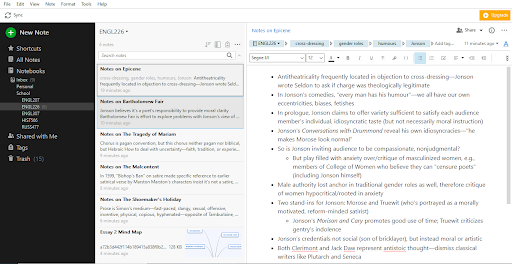
My note-taking strategies haven’t changed (I still group my notes by article and then mark my observations with bullet points), but my organization has improved. What was once a stack (or, let’s be real, a misshapen pile) of spiral-bound paper is now much more manageable.
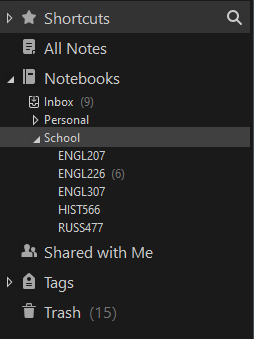
Keeping distinct notebooks for each course helps me stay organized. Even when I use a physical planner or calendar to record important dates, such as exam dates and assignment deadlines, creating a backup in Evernote prevents disaster. At the very least, if I misplace the physical copy, the backup saves me from doing extra work.
The individual notes within each notebook catalog my ideas with ease. Creating a single note for a lecture or meeting helps me capture key ideas, while flipping between notes helps me see the big picture. I can use tags to name the overall ideas and recurring themes from lectures across a semester.
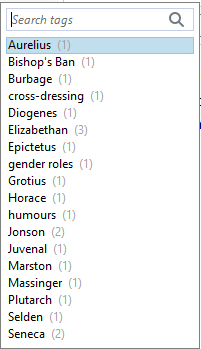
When I need to find information from a specific lecture or date, I sort notes by name, date of creation, or date of the last update. I also add tags to notes to sort them into different categories.
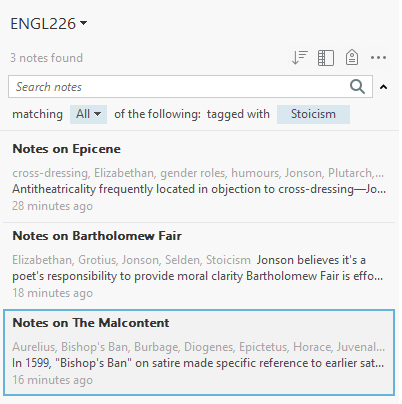
Perhaps most importantly, Evernote lets me search for specific terms to pull up related notes. Instead of flipping page by page to find two questions about, say, stoicism that I jotted down weeks ago, I can search for a keyword and focus on relevant results.
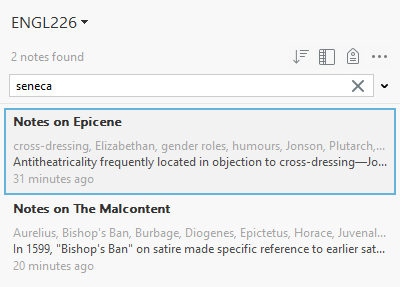
The search capability can be especially helpful when studying for an exam. In particular, I search either for key points from class or for concepts that haven’t clicked quite yet. Because the search capability lets me skim my notes, I’ve even used it when I begin brainstorming for an essay.
Of course, Evernote helps with more than note-taking, organizing, and searching. It also has several features that allow me to schedule and prioritize. Because I don’t like physical planners, I rely on Evernote’s to-do lists to remember to do almost everything, from uploading an English paper to my Sakai dropbox to emailing my grandparents.
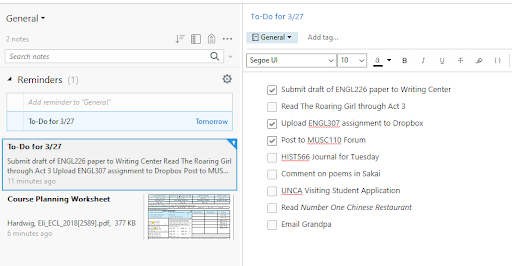
When my classes shifted to online learning, I found that clipping pages, articles, and screenshots directly to my Evernote folders saved a considerable amount of time. Since all my materials are electronic, why not add them to my digital notebook for good measure?
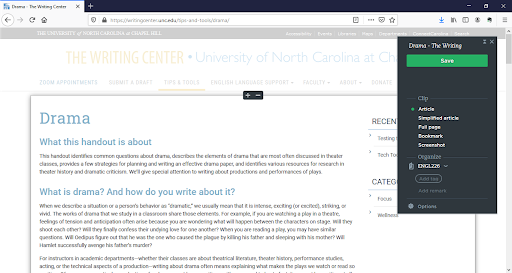
Having online classes also means more time in front of screens. When I can’t bear to type another word, I turn to voice notes, which let me explain my ideas aloud without worrying about typos, format, or screen glare. In fact, I’ve found voice notes especially helpful for brainstorming and planning my writing!
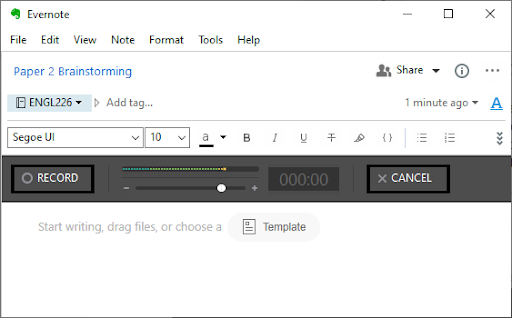
Online coursework still includes group projects, and social distancing has made these projects even more difficult. But for a recent project, I made the process less painful by sharing my notebook with my partners. When one of my partners, who lives in a different time zone, couldn’t take my call, I simply shared my course notes and sent a message through the app. The project kept moving, and we didn’t need to worry about being available at the same time.
During this time of uncertainty, I think it’s more important than ever to stay organized. Evernote helps me do just that.
This blog showcases the perspectives of UNC Chapel Hill community members learning and writing online. If you want to talk to a Writing and Learning Center coach about implementing strategies described in the blog, make an appointment with a writing coach or an academic coach today. Have an idea for a blog post about how you are learning and writing remotely? Contact us here.

